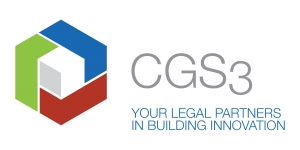From regulatory compliance to owner-tenant collaboration, the life sciences and biotech industries present some compelling commercial real estate leasing opportunities and challenges. In order to maximize negotiating leverage and anticipate costly issues that could arise during a lease term, business owners who are looking to lease to companies in these sectors should keep some key issues and strategies in mind. Doing so will help owners effectively manage the lease from start to finish and will set the stage for a positive and collaborative relationship with their tenants.
Unique Challenges, Opportunities Abound
One area that presents both challenges and opportunities is the dramatically increased capital requirements for laboratory space, since improvements are frequently designed for a particular tenant and not easily reconfigured for other users. On one hand, negotiations can become extensive when determining who funds improvement costs, who manages the buildout and who owns the improvements at the end of the term (or who has to dispose of equipment that has become obsolete). However, this creates incentive to lock in a long lease term and renew in place.
In addition, tenants are often cash-rich and credit-poor, so securing the upfront transaction costs can result in letters of credit or other creative security options. Because of this, it is important to have strong default and bankruptcy provisions included in the lease.
In multi-tenant situations, additional consideration needs to be given to the control of hazardous materials within the project and the capacity for storage of waste. Manufacturing settings require specific monitoring and building management systems that often necessitate that tenants have control of the building management system, so building infrastructure and system capacity may need to be carefully monitored or even upgraded in order to accommodate this.
The Legal Side of Life Sciences and Biotech Leasing
Life sciences companies are more heavily regulated than other types of users, and it is important to evaluate the specific uses and needs of the occupant and to check those against the applicable regulatory framework. This permeates many areas of the lease, from parking counts to hazardous materials storage and use, to zoning compliance.
Since the financial profile of life sciences companies is usually very fluid, understanding relevant lease provisions – specifically the assignment and subletting, default and security provisions – is crucial for any practitioner negotiating a life science agreement. Fortunately, given the nature of the relationship between landlords and tenants in this area, lease negotiations are typically collaborative.
An attorney’s primary concern in these scenarios is to ensure that the client understands the deal nuances, which they will be living with for many years, and that foreseeable risks are effectively managed or minimized. This is still a crucial role; the tenor of lease negotiations lays the groundwork for successful collaboration between landlord and tenant.
Landlord-Tenant Collaboration Is Central
Owners who lease to life sciences companies need to be willing to dive in and get to know their tenants and their tenants’ business. They should strive to develop sophistication in efficiently managing hazardous substances, larger draws on utilities, faster depreciation of building systems, and construction projects that go far beyond the typical office buildout. Being a passive observer will not work if an owner wants to lease to a life sciences company – the level of collaboration between landlords and tenants in the life sciences sector is much more critical than with other product types.
While many owners develop internal expertise in the unique aspects of ownership of lab buildings, they should also establish a reliable network of consultants to draw upon, and have a robust accounting capability in order to underwrite the credit of potential tenants and anticipate any impending defaults. A strong outside law firm and a solid consultant network help to ensure that both tenants and owners will be well informed and poised to effectively deal with those new regulations as they emerge.
About CGS3
Dawn Saunders recently joined Crosbie Gliner Schiffman Southard & Swanson LLP (CGS3) – a San Diego-based commercial real estate law firm – as its newest partner. Her leasing practice encompasses an array of industries, including the rapidly growing biotech, life sciences, lab, and technology sectors. Additionally, Dawn is frequently sought to provide legal advice to clients on the real estate implications of transactions, including mergers and acquisitions, as well as related corporate financing and restructuring. To learn more about CGS3, contact Dawn Saunders at 858-779-1720 or dsaunders@cgs3.com.
Sources:
Crosbie Gliner Schiffman Southard & Swanson LLP (CGS3)

